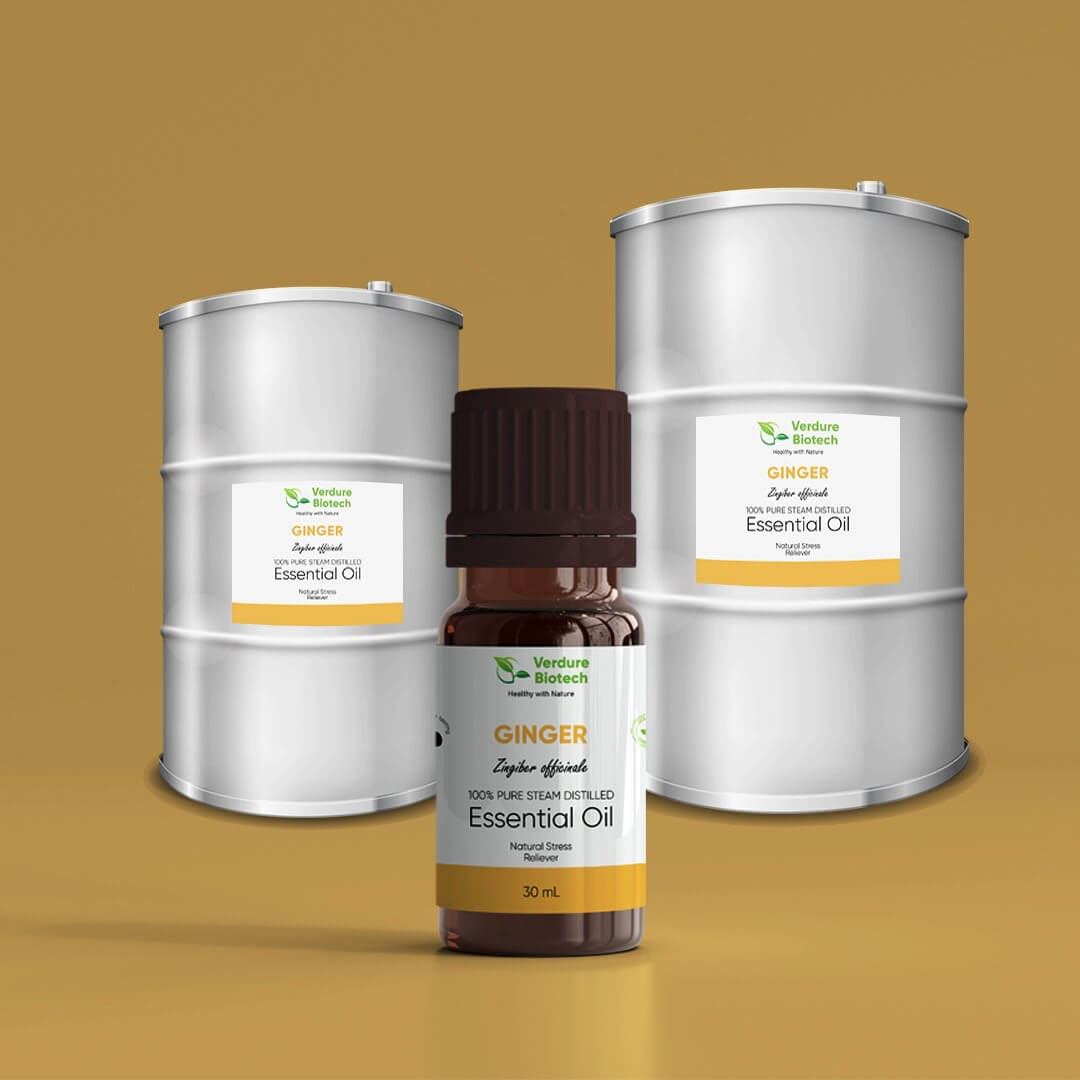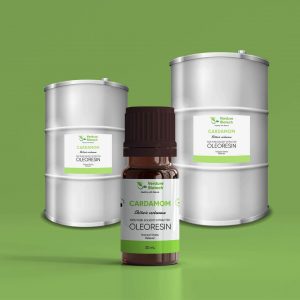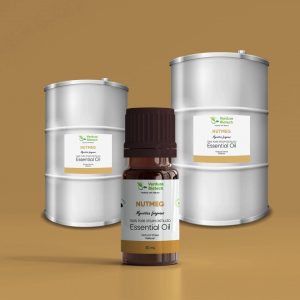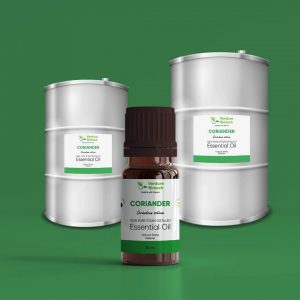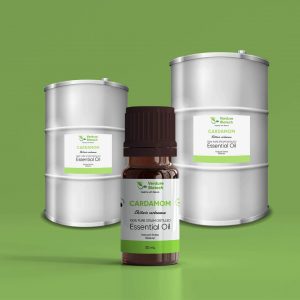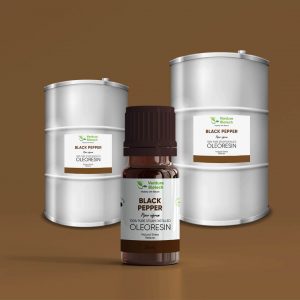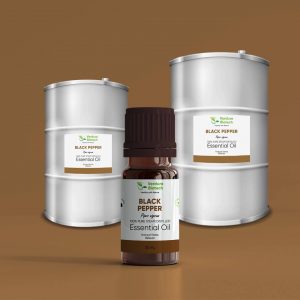Ginger Oil Supplier
Ginger Oil has a strong, warm or spicy aroma. It is used in aromatherapy. It is very beneficial for the skin & hair. It helps in cold & flu, nausea, motion sickness, morning sickness, muscle aches & pain. It improves poor circulation.
Constituents
Main : α-zingiberene, beta-sesquiphellandrene
Other : Geranial,1-8 cineole, Zingiberene, B- bisabolene, B-sesquiphellandrene, ±-pinene, camphene, linalool, borneol, -terpineol, nerol, geraniol, and geranyl acetate
Extraction:
It is extracted by steam distillation method.
Blending:
It blends well with Bergamot, Cedarwood, Clove, Coriander, Eucalyptus, Frankincense, Geranium, Grapefruit, Jasmine, Juniper, Lemon, Lime, Mandarin, Neroli, Orange, Palmarosa, Patchouli, Rose, Sandalwood, Vetivert and Ylang Ylang.
Uses of Ginger Oil
Topical Uses
- Aching Muscles
- Arthritis
- Nausea
- Indigestion
- Poor Circulation
- Nervous Exhaustion
- Nausea
- Hair applications
- Skin applications
Everyday Uses
- Relieves respiratory difficulties
- Digestive processes and relieving stomach discomforts even after surgery
- Proper functioning of the liver
- Handles cases of food poisoning, bacterial dysentery, and other infections
- Relieves inflammatory conditions
- Lowers cholesterol levels and improves heart health
- Boosts libido
- Depression, anxiety, and fatigue
- Reduces menstrual cramps, joint and muscular pains
Popular Uses
- Helps in the treatment of muscle aches, arthritis, and migraine
- Used for treatment for various stomach issues such as colic, indigestion, diarrhea, spasm, and stomach aches
- Used in aromatherapy as it brings a feeling of courageous and self-assurance and provides relief from depression, mental stress, dizziness, restlessness, exhaustion, and anxiety
- Provides relief from pain due to its Zingibain component
- Used to treat food poisoning, motion sickness, and vomiting
- Helps in intestinal infections and bacterial dysentery
- Effective against yellow fever and malaria
- Used to provide relief from menstrual illnesses such as irregular, menstrual cramps, and painful menstrual discharges
- Helpful in respiratory issues such as coughs, flu, asthma, breathlessness, and bronchitis as it helps in removing mucus from the throat & lungs
- Strengthens heart health, it reduces cholesterol level and prevents blood clotting lead to reduce risk of heart attack and stroke
- Used to treat kidney stones issues as it dissolves stones in the kidney
- Used for hair care as it helps in controlling dandruff
- Used to treat cancer
- Used to add in meals such as meat as a preservative and flavoring agent
Primary Benefits
- Internal use may help support healthy digestion
- Known as internal use of digestive aid to help ease occasional indigestion and nausea
- The soothing and calming aroma
How to Apply Ginger Oil
The Ginger essential oil has different uses and the application depends on the usages. Most commonly Ginger oil is used in skincare & in oil burners as a calming fragrance. Dilute the essential oils with a carrier oil for the best results as they are very concentrated. Carrier oil mix well with essential oils and helps take them within the skin.
Caution
- Pregnant & breastfeeding women should avoid it.

